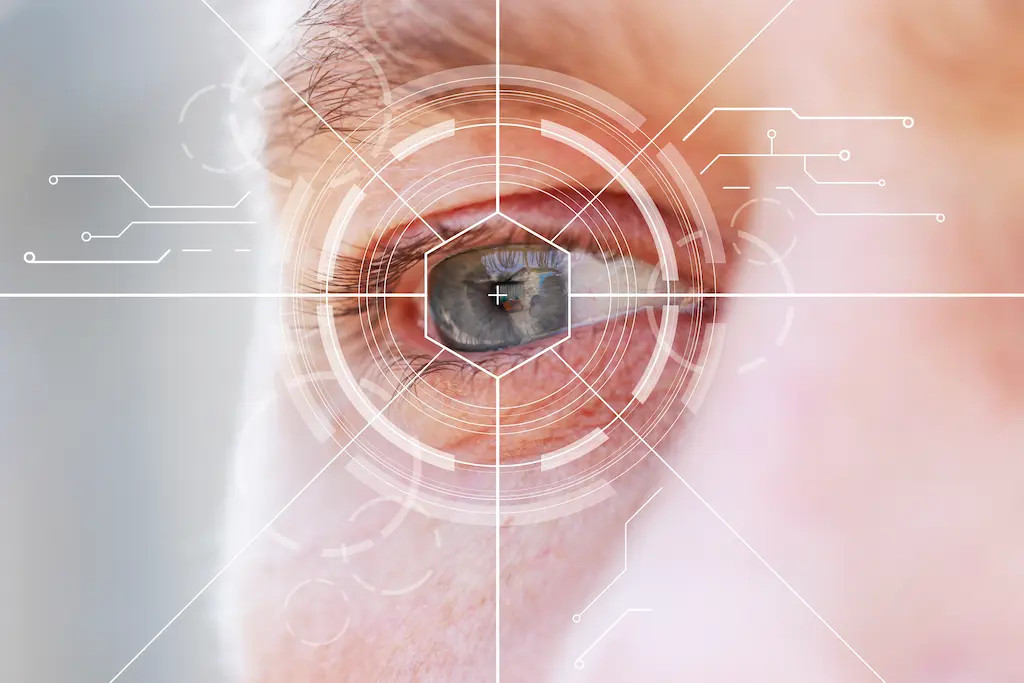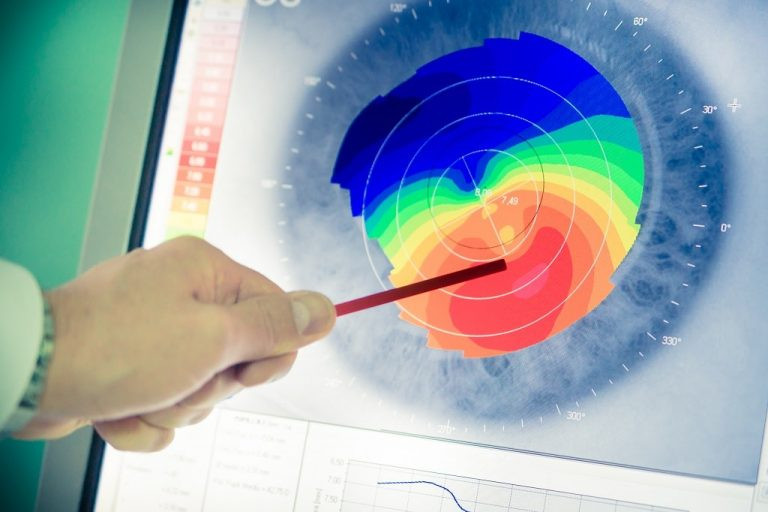 Concerned senior man looking out airplane window, wondering about flying after cataract surgery
Concerned senior man looking out airplane window, wondering about flying after cataract surgery
Cataract surgery is a life-changing procedure that restores vision and enhances quality of life. If you’re an avid traveler, you might be wondering, “Can You Fly After Cataract Surgery?” The good news is, in most cases, air travel is perfectly safe after undergoing cataract surgery. This comprehensive guide will address everything you need to know about flying post-cataract surgery, ensuring your journey is smooth and your recovery remains on track.
Flying After Cataract Surgery: Debunking the Myths
Many patients are relieved to hear that there are generally no strict medical restrictions on flying after cataract surgery, including both traditional and laser-assisted procedures. You usually don’t need to reschedule your flight. However, it’s crucial to understand the nuances and potential considerations to ensure a comfortable and safe travel experience.
It’s particularly important to note an exception: if you’ve had detached retina surgery involving the injection of a gas bubble, flying is contraindicated until the bubble has fully dissipated. Changes in cabin pressure can cause the gas bubble to expand, leading to serious complications. Always consult your ophthalmologist about any gas bubble injection and air travel.
Beyond this specific scenario, there are general aspects of post-cataract surgery care and air travel environments that you should be aware of.
Key Considerations for Air Travel Post-Cataract Surgery
While flying is generally permitted soon after cataract surgery, some factors can impact your comfort and recovery during air travel. These primarily revolve around dry eyes, post-operative care schedules, and the environment of an airplane cabin.
Dry Eyes: A Common Post-Surgery and In-Flight Issue
Cataract surgery can temporarily exacerbate dry eye symptoms. This is often due to the use of Betadine antiseptic during the procedure and preservatives in post-operative eye drops. These factors, combined with potential decreased tear production and surgical disruption of the ocular surface, can lead to dry eyes.
Dry eye symptoms include burning, stinging, a gritty sensation, and blurred vision. These symptoms can be amplified in the dry environment of an airplane cabin, increasing the urge to rub your eyes, which elevates the risk of infection.
The humidity in an airplane cabin is significantly lower than in typical indoor environments, often dropping below 1%. This arid atmosphere, combined with potential dehydration from travel and disrupted routines, can worsen dry eye symptoms.
To mitigate dry eye discomfort during and after your flight, proactive measures are essential.
Post-Operative Appointment Scheduling and Travel
Adhering to your ophthalmologist’s post-operative schedule is critical for monitoring your healing and detecting any potential complications early. Typically, follow-up appointments are scheduled one day after surgery and again within the following two weeks.
If you have upcoming travel plans shortly after your cataract surgery, it’s imperative to discuss this with your surgeon. Ideally, schedule your appointments around your travel dates. Missing these appointments can delay the detection of any issues and potentially compromise your recovery.
Furthermore, diligently follow all post-operative instructions provided by your surgeon. This includes consistent use of prescribed eye drops and wearing a protective sleep mask, especially in the days immediately following surgery. If you have any concerns about traveling or engaging in activities soon after surgery, always seek personalized advice from your ophthalmologist.
Travel Insurance and Cataract Surgery
Generally, cataract surgery does not directly impact travel insurance coverage. However, it’s prudent to review your specific travel insurance policy or contact your provider to confirm. Some policies might have clauses requiring a minimum waiting period between surgery and travel commencement for full coverage eligibility. Additionally, some policies might exclude medical expenses specifically related to cataract surgery. Clarifying these details beforehand can prevent unexpected issues.
Access to Medical Care During Travel
 Concerned woman checking her eye after cataract surgery, thinking about medical access while traveling
Concerned woman checking her eye after cataract surgery, thinking about medical access while traveling
While most patients feel significantly better within 24 hours of cataract surgery, with light sensitivity potentially lingering for a few days, the full cataract surgery recovery time typically spans four to six weeks. During this period, maintaining eye hygiene and lubrication is crucial for optimal healing.
Infections after cataract surgery are rare, but recognizing potential symptoms is vital. Worsening vision, redness, and eye pain should be considered serious and require immediate medical attention. Delays in treatment can, in rare cases, lead to permanent vision loss.
If an infection occurs while traveling, seeking prompt ophthalmologic medical care is essential. This is generally readily available in well-developed urban areas. During your recovery, especially in the initial weeks, it’s advisable to avoid traveling to remote locations where access to medical care might be limited.
Essential Tips for Flying Comfortably After Cataract Surgery
To ensure a comfortable flight and support your recovery after cataract surgery, consider these practical tips:
- Pre-Flight Consultation: Discuss your travel plans with your eye surgeon. Ask about expected post-operative symptoms and what would constitute a cause for concern while traveling.
- Consider a Home Buffer: If possible, plan to stay home for a few days immediately following surgery, or for the duration recommended by your doctor, to monitor for any early complications in a familiar environment.
- Prioritize Follow-Up Appointments: Make every effort to attend all scheduled post-operative appointments to ensure your healing progresses as expected and your surgeon can address any concerns.
- Frequent Artificial Tears: Combat dry eye effectively during flights by using preservative-free artificial tears frequently, even hourly if needed. Preservative-free options minimize potential irritation.
- Nap on the Plane: Sleep is restorative. Napping during your flight can significantly reduce eye dryness and fatigue.
- Hydration is Key: Drink ample water throughout your journey. Dehydration exacerbates dry eyes. Carry an empty water bottle to fill after airport security to ensure you stay hydrated during your flight.
- Adjust Air Vents: Minimize direct airflow towards your face by closing or adjusting the air vent above your seat. This reduces the drying effect of the cabin air.
Navigating Your Travel Plans with Confidence
Flying after cataract surgery is generally safe and manageable with proper planning and precautions. The most crucial step is to maintain open communication with your ophthalmologist regarding your travel plans and adhere to their post-operative instructions diligently. By prioritizing eye lubrication, scheduling follow-up care, and being mindful of the airplane cabin environment, you can travel comfortably and confidently while ensuring a smooth recovery after your cataract surgery.
Do you have further questions about cataract surgery or post-operative care? Schedule a consultation with the experts at Discover Vision Centers in Kansas City to receive personalized guidance and ensure the best possible vision outcome.
Home » Blog » Can You Fly After Cataract Surgery?
Related posts
 Can You Get LASIK After 40?Updated: March 07, 2024
Can You Get LASIK After 40?Updated: March 07, 2024
Can You Get LASIK After 40?
 What Is the Difference Between ICL vs. LASIK?Updated: August 01, 2023
What Is the Difference Between ICL vs. LASIK?Updated: August 01, 2023
What Is the Difference Between ICL vs. LASIK?
 Can Keratoconus Cause Blindness?Updated: March 15, 2023
Can Keratoconus Cause Blindness?Updated: March 15, 2023
Can Keratoconus Cause Blindness?
